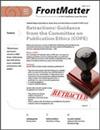中国男性和女性感知声音响度的差异
IF 0.4
4区 工程技术
Q4 ACOUSTICS
引用次数: 0
摘要
在之前的研究中,日本男性和女性在感知响度方面存在性别差异。与男性参与者相比,女性参与者倾向于为相同声压级的声音分配更高的响度分数。然而,当使用比率标度来评估响度时,例如在幅度估计中,没有清楚地观察到这种差异。为了讨论影响感知响度性别差异的因素,对中国男性和女性进行了与先前研究中相同的评分实验。一项使用言语间隔量表的评分实验表明,中国女性倾向于将相同的声音评为比中国男性更响亮的声音。性别效应在一项实验中被复制,该实验使用了一种调整方法,该方法测量了被感知为柔和或响亮的声压级的极限;女性在轻柔声音的最高限度和响亮声音的最低限度方面选择了比男性更低的级别。这些趋势与之前研究中观察到的日本男性和女性的趋势相同。采用数量级估计和数量级生成方法对比例量表进行评分实验表明,在某些条件下,史蒂文斯幂律中女性参与者的幂指数a大于男性参与者。然而,观察到的中国人幂指数a的性别差异并不一致,而日本人则不清楚。对响度进行口头分类的标准中的性别差异可能是感知响度的性别差异的原因。本文章由计算机程序翻译,如有差异,请以英文原文为准。
Difference in the perceived loudness of sound between Chinese men and women
Gender differences in perceived loudness have been observed between Japanese men and women in previous studies. Female participants tended to assign higher loudness scores to sounds of the same sound pressure level than did male participants. However, this difference was not clearly
observed when using a ratio scale for the evaluation of loudness, such as in a magnitude estimation. To discuss factors affecting gender differences in perceived loudness, the same rating experiments used in previous studies were conducted with Chinese men and women. A rating experiment using
a verbal interval scale showed that Chinese women tended to rate the same sounds as louder than did Chinese men. The gender effect was replicated in an experiment using an adjustment method that measured the limits of the sound pressure level perceived as soft or loud; women selected lower
levels than did men for the highest limit of soft sounds and the lowest limit of loud sounds. These tendencies were the same as those of Japanese men and women observed in previous studies. Rating experiments adopting the methods of magnitude estimation and magnitude production for the ratio
scales showed that the power exponent a in Stevens' power law was larger for female participants than for male participants under some conditions. However, the observed gender difference in the power exponent a for Chinese was not consistent, while it was not clear for Japanese. The gender
difference in criteria for verbally categorizing loudness may be responsible for the gender difference in perceived loudness.
求助全文
通过发布文献求助,成功后即可免费获取论文全文。
去求助
来源期刊

Noise Control Engineering Journal
工程技术-工程:综合
CiteScore
0.90
自引率
25.00%
发文量
37
审稿时长
3 months
期刊介绍:
NCEJ is the pre-eminent academic journal of noise control. It is the International Journal of the Institute of Noise Control Engineering of the USA. It is also produced with the participation and assistance of the Korean Society of Noise and Vibration Engineering (KSNVE).
NCEJ reaches noise control professionals around the world, covering over 50 national noise control societies and institutes.
INCE encourages you to submit your next paper to NCEJ. Choosing NCEJ:
Provides the opportunity to reach a global audience of NCE professionals, academics, and students;
Enhances the prestige of your work;
Validates your work by formal peer review.
 求助内容:
求助内容: 应助结果提醒方式:
应助结果提醒方式:


